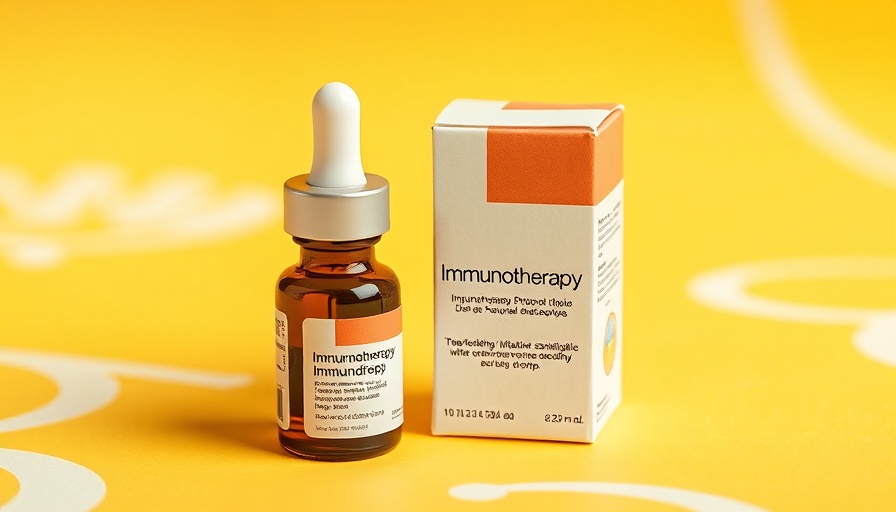
Transforming Food Allergy Management Through Innovative Science
For many individuals dealing with food allergies, every meal can feel like a precarious challenge. The constant fear of accidental exposure to allergens can transform dining into a source of anxiety, making outings to restaurants feel like a game of Russian roulette. As food is a central part of culture and social interaction, this fear can significantly diminish one's quality of life. Luckily, advancements in allergy treatment offer new hope.
Enter Sublingual Immunotherapy (SLIT)
In recent years, sublingual immunotherapy (SLIT) has emerged as a game-changing solution. Unlike traditional oral immunotherapy (OIT) that involves drinking a concoction of allergens and often triggers painful side effects, SLIT employs an innovative approach. Administered through drops under the tongue, it introduces small, safe quantities of allergenic substances, such as peanuts or shellfish, directly into the bloodstream. This method minimizes risk while maximizing effectiveness, paving the way for a deeper understanding of food allergies.
Why SLIT is Gaining Popularity Among Patients
SLIT has exhibited remarkable efficacy in the treatment of environmental allergies, and recent studies indicate its effectiveness in food allergies as well. The controlled dosage administered through sublingual drops means that patients experience fewer side effects compared to their OIT counterparts. Patients often find themselves more willing to complete the treatment regimen, leading to improved tolerance levels and reduced anxiety around food consumption.
The Science Behind the Treatment
The magic of SLIT lies in its methodical approach to desensitization. Over time, the immune system learns to respond differently to the allergens introduced through the drops. This gradual exposure helps train the body to tolerate allergens, which can drastically change a patient's relationship with food. Patients report not only a decrease in the severity of allergic reactions but also a newfound confidence in dining out and social situations.
From Fear to Freedom: Patients' Transformative Experiences
For the majority of patients who adopt SLIT, the results can be life-changing. Individuals who once dreaded the prospect of dining out or trying new foods report enhanced energy levels, greater social freedom, and improved overall mental well-being. The anxiety surrounding accidental exposure to allergens diminishes as patients learn to navigate their diets more confidently, integrating formerly off-limits foods into their meals.
The Role of Care Providers in Patient Success
As a concierge medical practice owner, understanding the implications of cutting-edge treatments like SLIT can significantly impact the care you provide. Positioning your practice at the forefront of allergy treatment not only enhances your service offerings but fosters deeper, trust-based connections with patients seeking comprehensive care. Connecting with patients who may have previously felt isolated in their struggles can uplift the entire practice and encourage a community-focused healthcare model.
The Future of Allergy Treatments
With innovations in immunotherapy, the future looks promising for those battling food allergies. SLIT leads the way, not just in effectiveness but also in accessibility. Offering treatments that can be self-administered at home empowers patients, allowing them to reclaim their lives without constant medical appointments. As more practices adopt this groundbreaking approach, they contribute to a new narrative where food allergies become manageable rather than debilitating.
Encouraging a Holistic Approach to Patient Care
In understanding and implementing treatments like SLIT, medical providers can better support patients through empathy and effective communication. By demystifying complex medical information and coupling it with compassionate care, healthcare professionals can ensure that patients not only have access to innovative treatments but also feel understood and supported throughout their journeys.
 Add Row
Add Row  Add
Add 






Write A Comment